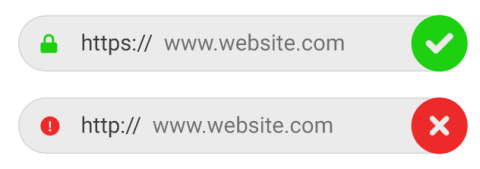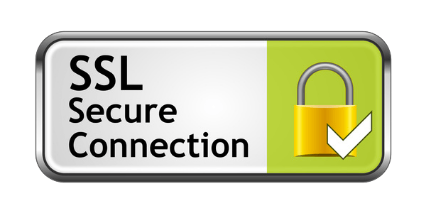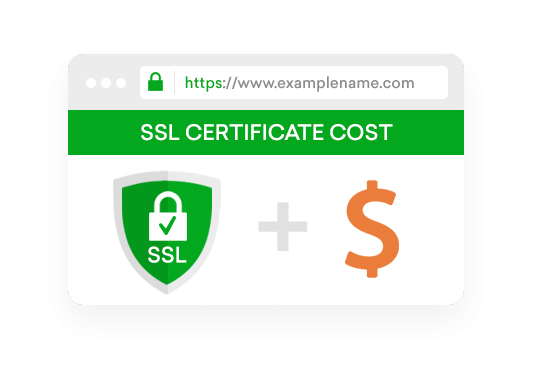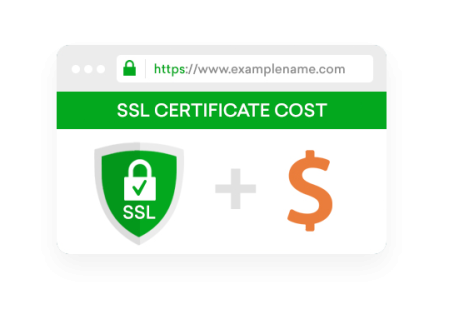Hosting > SSL Certificate
SSL Certificates
An SSL certificate is a digital certificate that authenticates your website and enables an encrypted connection. SSL (Secure Sockets Layer) is a security protocol that creates an encrypted link between a web server and a web browser.
An SSL certificate is a digital certificate that authenticates your website and enables an encrypted connection. SSL (Secure Sockets Layer) is a security protocol that creates an encrypted link between a web server and a web browser.
Secure your Website
The encrypted connection enables websites to ensure online transactions and customer information is kept private and secure. The connection prevents hackers and cybercriminals from accessing passwords, credit card details, addresses and other personal information via your website.

Does my business need managed VPS?

Almost all websites will require an SSL certificate. Any website which collects personal information will require this level of protection, which generally applies to the majority of websites. That may include collecting customer contact information when they complete and submit a form on your website, accepting online payments or having a password protected part of your website.
An SSL certificate is also required for an HTTPS web address. Most web browsers will notify the user if they attempt to visit a website without an HTTPS web address to let them know it may be unsafe. This can discentivise users from accessing your site and affect your brand’s credibility.

Which SSL Certificate will I need?
There are four main types of SSL Certificates.

Domain Validation SSL Certificate

Organisational Validation SSL Certificate

Extended validation SSL Certificate

Wildcard SSL Certificate
Domain Validation SSL Certificates

A Domain Validation (DV) SSL Certificate is the most basic SSL Certificate.

As an entry-level option, a Domain Validation SSL Certificate protects a single domain and is a good option for small businesses and sole traders.

For more protection, organisations should consider either an Organisational Validation SSL Certificate or an Extended Validation SSL Certificate.

Larger organisations will typically have multiple domains and subdomains to protect, which means a Domain Validation SSL Certificate won’t suffice. Those organisations will require a Wildcard SSL Certificate.
Organisation Validation SSL Certificates
An Organisation Validation (OV) SSL Certificate provides an enhanced level of security for a single domain. It’s typically used by eCommerce websites due to it including a higher warranty for users purchasing items from your site and additional validation.
A Wildcard SSL Certificate includes a similar level of protection as a Organisational Validation SSL Certificate, except across multiple domains. It does not require the comprehensive authentication and identity verification process of an Extended Validation SSL Certificate.
How much does an SSL Certificate cost?
- An Extended EV SSL Certificate provides the top level of security. The authentication and identity verification process is more comprehensive. This is a good option for larger companies which need greater protection and the credibility EV provides.
- Larger organisations will typically have multiple domains and subdomains to protect, which means an Organisational Validation or Extended Validation SSL Certificate won’t suffice. Those organisations will require a Wildcard SSL Certificate.

How much does an SSL Certificate cost?

- An Extended EV SSL Certificate provides the top level of security. The authentication and identity verification process is more comprehensive. This is a good option for larger companies which need greater protection and the credibility EV provides.
- Larger organisations will typically have multiple domains and subdomains to protect, which means an Organisational Validation or Extended Validation SSL Certificate won’t suffice. Those organisations will require a Wildcard SSL Certificate.
Wildcard SSL Certificates
Wildcard SSL Certificates are for organisations with multiple domains and subdomains to protect. For example, a wildcard certificate for .(domainname).com, could also be used for services.(domainname).com, store.(domainname).com and so on.
A Wildcard SSL Certificate includes a similar level of protection as a Organisational Validation SSL Certificate, except across multiple domains. It does not require the comprehensive authentication and identity verification process of an Extended Validation SSL Certificate.
Get your SSL Certificate service now
Copyright © 1994 - 2024 IT&T Pty Ltd